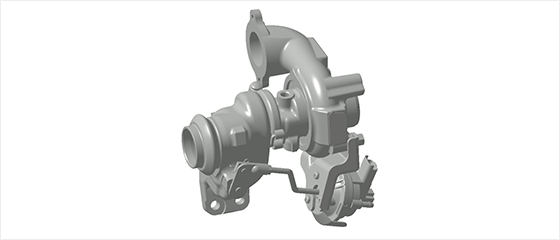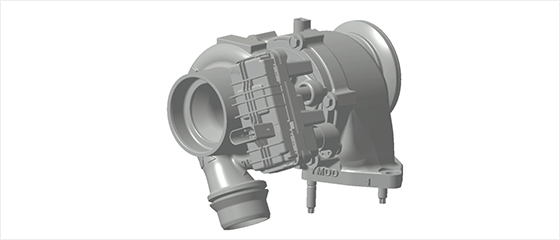
Turbochargers for diesel vehicles
Turbochargers have traditionally mainly been applied to diesel vehicles and almost all diesel vehicles in Europe are turbocharged today.
The concept of turbocharging is fundamentally the same for gasoline and diesel engines. However, there are some differences due to the different combustion processes of the fuels.
In a diesel engine, while the piston is approaching TDC (top dead center) during the compression stroke, the fuel is injected and combustion happens spontaneously due to the high pressure and high temperature in the combustion chamber. For diesel applications, the engine compression ratio needs to be high in order to initiate combustion.
This leads to a higher peak pressure while the exhaust gas temperatures are generally lower than in a gasoline engine (around 800~850C°) due to a combination of higher engine expansion ratio and lean combustion process. Therefore, the material composition of the turbocharger is generally different than for gasoline applications.
Currently, the market for diesel vehicles is decreasing. Due to the combustion process, NOx formation is higher than in a gasoline engine and specific after treatment systems (NOx traps, SCR, etc.) are needed in order to comply with the regulations. It will be difficult for diesel vehicles to be cost efficient and therefore smaller class diesel vehicles are expected to completely fall out of the market in a near future.




